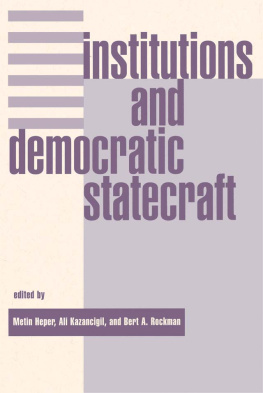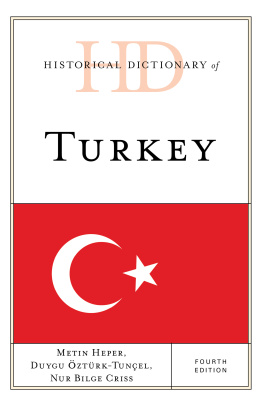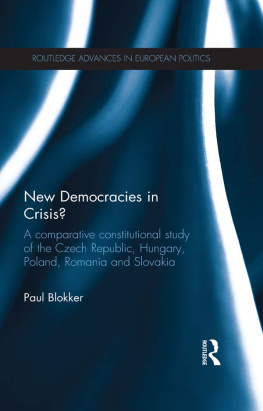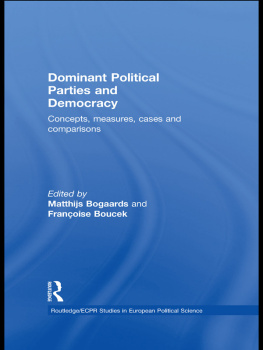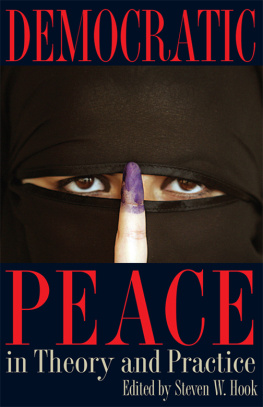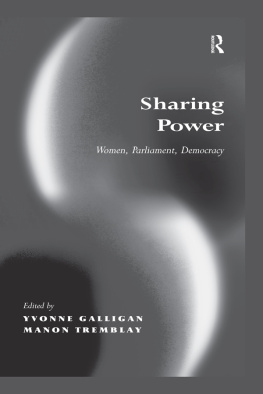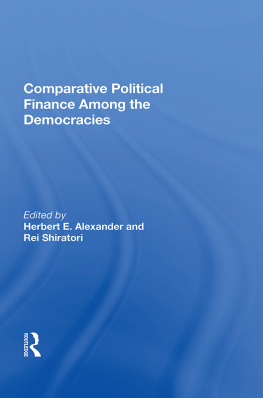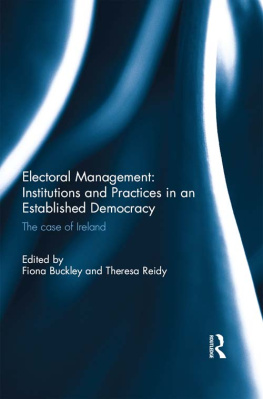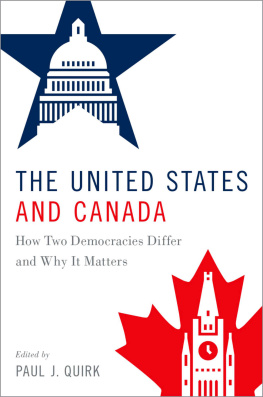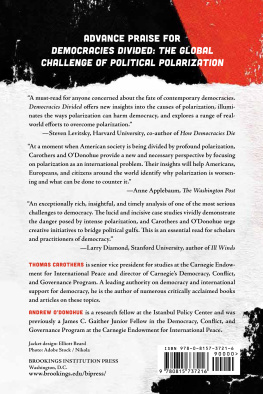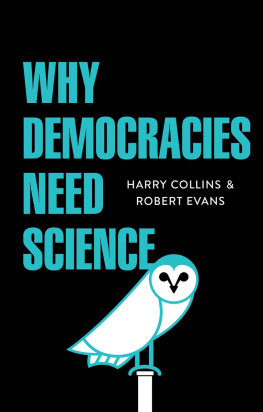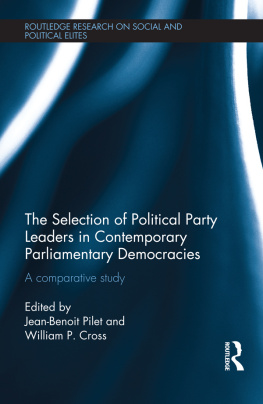First published 1998 by Westview Press
Published 2018 by Routledge
711 Third Avenue, New York, NY 10017, USA
2 Park Square, Milton Park, Abingdon, Oxon OX14 4RN
Routledge is an imprint of the Taylor & Francis Group, an informa business
Copyright 1997 Taylor & Francis
All rights reserved. No part of this book may be reprinted or reproduced or utilised in any form or by any electronic, mechanical, or other means, now known or hereafter invented, including photocopying and recording, or in any information storage or retrieval system, without permission in writing from the publishers.
Notice:
Product or corporate names may be trademarks or registered trademarks, and are used only for identification and explanation without intent to infringe.
Library of Congress Cataloging-in-Publication Data
Institutions and democratic statecraft / edited by Metin Heper, Ali
Kazancigil, and Bert A. Rockman.
p. cm.
Includes index.
ISBN 0-8133-6692-5
1. Democracy. 2. Comparative government. I. Heper, Metin.
II. Kazancigil, Ali. III. Rockman, Bert A.
JC421.153 1997
321.8dc21
97-23230
CIP
ISBN 13: 978-0-8133-6692-0 (pbk)
1
Introduction
Metin Heper
With the advent of the 1990s, a renewed interest developed in democracy ( inter alia, Huntington, 1991; Hermet, 1991). Concerning the fortunes of democracy in different countries, interest three decades ago had focused on the "prerequisites" of democracy. It was assumed, for instance by Lipset (1963), that industrialization, urbanization, higher rates of literacy, and the like would make individuals more aware of their environment and allow them to acquire the ability and have the time and the means to participate in politics more efficaciously. The preoccupation was with societal factorsthe socioeconomic milieu within which the political system functioned. The goal was that of promoting "democratization," or bolstering the political participation dimension of democracy.
This earlier perspective on democracy was later supplemented by a new approach which placed emphasis on the "requisites" of democracy (Rustow, 1970). It was suggested that, given the one important precondition of national unity, a viable democracy could be established through a process of polarization, crisis and compromise among the political actors. The assumption was that in the last analysis a smoothly functioning democracy would be the handwork of politicians skilled in bargaining techniques. The interest had now shifted from the societal factors to the political ones, and the goal was that of nurturing politicians who could work together harmoniously. More recently Di Palma (1990) has noted that what is needed are tactically skilled democratizing elites who can quickly bring the transition to democracy to a close by using formal pacts which would commit as many social actors as possible to democratic procedures and by finding ways to accommodate the organized interests of business, labor and the state.
The somewhat related "Transitions" project of O'Donnell, Schmitter and Whitehead (1986) in turn focussed on relatively short-run developments and the reactions of the political elites to those developments. The proponents of this approach came up with a scenario of gradual and controlled regime change which ensures successful transition to democracy. Again the stress was on the politicians, and the aim was that of developing a politics of harmony.
Earlier, Huntington (1968) had dwelled on a different problem. According to him the process of political institutionalization, that is the emergence of an autonomous political center with its distinctive norms and values, was more important than politicians adept at bargaining and compromise. A smoothly functioning democracy, according to Huntington, needs political institutions that would temper, moderate and redirect the relative power of social forces.
A recent approach developed first by Linz (1990a, 1990b), complemented by Horowitz (1990), and used inter alia by Vanhanen (1992), has stressed the importance of types of government (parliamentarism versus presidentialism) and of electoral system (plurality system versus proportional representation). Linz has argued that presidentialism exacerbates conflict while parliamentarism ameliorates it. The stakes of winning and losing are too high in the former; concerning the change of ruler, the system is too rigid. In his case study of Uruguay, Gonzlez (1992) reached a conclusion similar to Linz's concerning the problematic effects of presidential systems vis--vis democratic stability. Gonzlez's remedy, too, was a shift to a parliamentary system. In respect to electoral systems, a plurality system leading to majoritarian democracy is considered by Linz as appropriate in the case of relatively more homogeneous societies; proportional representation leading to consensual democracy is viewed as desirable concerning the relatively more heterogeneous societies. Linz's argument has assumed a close relationship between political harmony and types of government on the one hand, and social harmony and electoral systems on the other.
This last approach has attracted a plethora of criticism. Some like Shugart and Carey (1992) have contended that presidential systems may well be superior to parliamentary systems because the "two agents" involved, the presidency and the legislature, can optimize between the two contradictory goals of democratic systemsefficiency and representativeness. Others have taken issue with perceiving any one governmental system as a panacea and, like Lijphart (1991), have argued that each and every type of government has mixed implications for the polity. It was noted that presidentialism, for instance, yields majoritarian effects on the party system (it leads to a two-party system) and on the executive (a strong executive emerges), but it has a consensus effect on executive-legislative relations (cooperation between the two organs of government becomes a necessity). Horowitz (1990) has criticized the condemnation of a single political institution like the presidency as a source of conflict without examining the total configuration of political institutions in a given country; the latter according to Horowitz may increase or decrease the impact of any particular political institution. This argument has been supported by Riggs (1988); Riggs has shown how in the United States such "para-constitutional" phenomena as loose political party structure, long ballots, tendency toward involvement in private rather than public organizations, common law tradition, and the like have contributed to the successful functioning of presidentialism. Horowitz (1990) has also argued that if Linz's focus had been on instability in post-colonial Asia and Africa instead of Latin America, the institutional villain would surely have been the parliamentary system. Lipset (1990) has come up with an argument similar to that of Horowitz when he has noted that, as there had been numerous successful and unsuccessful parliamentary and presidential forms of government, it was not at all clear whether constitutional variation in the type of executive was closely linked to democratic or authoritarian outcomes. In Lipset's (1990) estimation, except in the case of the French Fifth Republic and perhaps the post-1949 Federal Republic of Germany, political institutions did not have much effect on stable democratic government; critical here were economic and cultural factors. Lipset has noted that the long-enduring democracies were disproportionately found among the wealthier and Protestant nations. Hagopian (1993), in turn, has placed emphasis on political traditions; he has argued that institutional framework should to some extent fit "national patterns," otherwise problems may be exacerbated. Hagopian (1993: 500) has noted that in Brazil, for instance, if one adopted a parliamentary system of government to avert clientelism as has been suggested "...negotiations among parties to form parliamentary majorities would only intensify the rampant state clientelism that has destroyed...[Brazil's] fiscal health."

